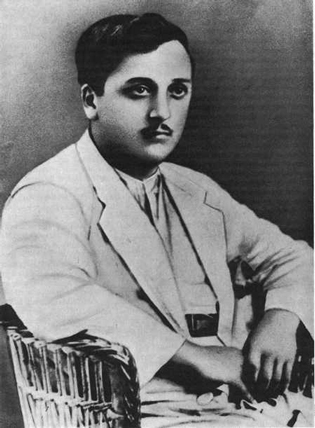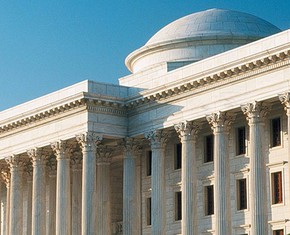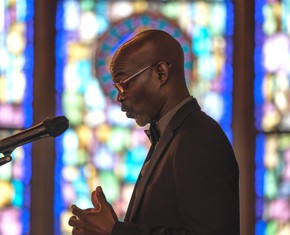The views expressed in our content reflect individual perspectives and do not represent the authoritative views of the Baha'i Faith.
You will find imperfect people in every religion, the Baha’i Faith included.
It would be a bad sign if you didn’t — because it would mean that some cruel process had excluded those imperfect souls. Being an imperfect person myself, I’m glad no restrictions exist on who can become a Baha’i.
Imperfections can, of course, bring challenges. It did in early Christianity, as any student of Paul’s letters knows. Christian Jews had dietary restrictions that they felt Gentile Christians should follow, requiring Paul to plead: Let us cease judging one another (Romans 14:1220). Among Christians in Corinth there were quarrels that brought the attention of local courts, causing Paul to write: “Can you not see that while there is jealousy and strife among you, you are living on a purely human level of your lower nature?” (1 Cor 3:3). Acts of immorality were also common. Paul advised: “I now write that you must have nothing to do with any socalled Christian who leads a loose life”… and that “There are some who know nothing of God; to your shame I say it” (1 Cor 5:911, 1 Cor 15:3334). The situation was so bad that Paul complained that their meetings tended to do more harm than good (1 Cor 11:17) and Paul despaired of life itself (2 Cor 1:8).
By contrast, the Baha’i community has enormous vitality. I’ve found that genuine warmth and affection exists between the Baha’is. This religion tends to attract gentle people: lovers, poets, scholars, artists, misfits, cast-offs, the sweetest of scientists, merchants, laborers and workers, and good average Joes, Janes, Ahmads and Arianas. Don’t get me wrong – Baha’is have challenges. The Baha’is often face a clash of world cultures with different temperaments, opposing customs, and intransigent habits. In short, Baha’is have the troubles of the whole world to deal with, and conflict is both inevitable and essential if the differing peoples are to come together and create a unified spiritual culture.
Having said that, you may encounter among the Baha’is someone who really “gets your goat.” It’s the same in any religious community. In my experience, clashes of personality or culture can often be healed by constancy. Over time I have learned to love people that I initially found very difficult. Indeed, as I now reflect on some of these people, I feel dwarfed by what seems the height of their spiritual station and I feel truly blessed to have known them.
Baha’i communities also differ from many other religious communities in their concept of obedience to the institutions of the faith. In Christian and other religious communities if you have a disagreement with church leadership, it is common to simply leave and find another church. Sometimes dissatisfied parishioners even start their own church, synagogue, mosque, or temple. This continual cycle of disagreement and disunity has split every past religion into tens of thousands of pieces – many at active war with each other.
In the Baha’i Faith, with its focus on unity, this kind of sectarian split cannot happen. The Baha’i Faith has remained unified for almost two hundred years for that reason. Baha’is belong to one local community, assigned by geographic location, and they can neither choose another community (unless they move) nor start their own. They are bound by what Baha’is call the Covenant – the obligation for all Baha’is, passed down from Baha’u’llah and Abdu’l-Baha themselves, to guard and protect the lasting unity of the Baha’i Faith.
Baha’u’llah, for the sake of the permanency of the Baha’i Cause and the avoidance of dissension among its adherents, protected the Faith from division by appointing a “Center of the Covenant” – Abdu’l-Baha. Abdu’l-Baha guided and protected the religion from disunity until his passing, when he appointed Shoghi Effendi as the Guardian of the Baha’i Faith. After Shoghi Effendi passed away, the Baha’i world elected the first Universal House of Justice, which now functions as the Center of the Covenant and the protector of the Baha’i Faith’s unity and coherence:
As to the most great characteristic of the revelation of Baha’u’llah — a specific teaching not given by any of the Prophets of the past — it is the ordination and appointment of the Center of the Covenant. By this appointment and provision He has safeguarded and protected the religion of God against differences and schisms, making it impossible for any one to create a new sect or faction of belief. To insure unity and agreement He has entered into a Covenant with all the people of the world including the Interpreter and Explainer of His teachings so that no one may interpret or explain the religion of God according to his own view or opinion and thus create a sect founded upon his individual understanding of the divine words. – Abdu’l-Baha, Baha’i World Faith – p. 247.
Baha’is believe wholeheartedly in the power of unity to address the world’s most intractable and difficult issues — and the Baha’i Covenant protects and guards that lasting unity. No major world Faith has ever successfully protected itself against division before now – but the Baha’i Faith, committed to unite humanity, serves as a hopeful beacon of unity for all the world.

















Comments
Sign in or create an account
Continue with Googleor